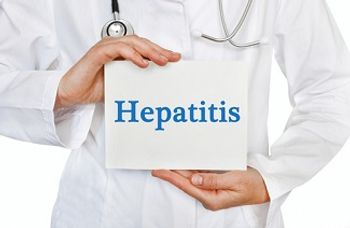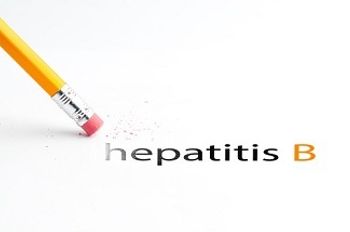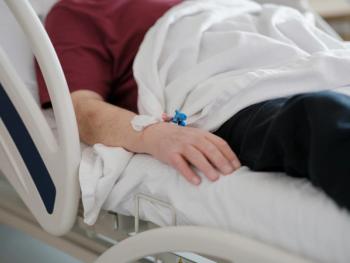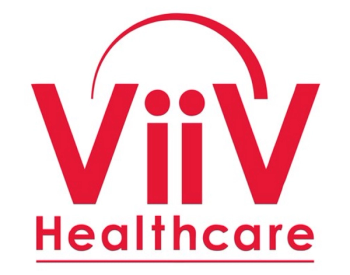
New 96-week results from the study show that Dovato is as effective as Biktarvy in maintaining viral suppression in adults with HIV, while leading to less weight gain and fewer drug-related adverse events.

New 96-week results from the study show that Dovato is as effective as Biktarvy in maintaining viral suppression in adults with HIV, while leading to less weight gain and fewer drug-related adverse events.

Findings from the CAPELLA study reveal virologic suppression and a safety profile for multidrug-resistant HIV-1.

The combination of the antiviral agents islatravir and lenacapavir demonstrates both efficacy and safety, leading to advancement into Phase 3 trials.

A five-year study highlights high virologic suppression and well-tolerated treatment in black patients.

A study of carbapenemase-producing organisms found similar rates of infections, highlighting treatment challenges, the role of rapid diagnostics, and surveillance on antimicrobial stewardship due to high mortality rates.

Led by Shruti K. Gohil, MD, MPH, the trials examined how computerized physician order entry prompts can reduce the use of extended-spectrum antibiotics in hospitalized patients while maintaining patient safety.

ActivePure’s Deborah Birx, MD, and Amy Carenza, BBA, discuss their study showing a 99% reduction in fungal colony-forming units, 98% reduction in aerobic bacteria, and a 66% decrease in C auris.

New approach targets multiple strains, promising broad protection against human, avian, and swine influenza viruses.

Sohaib Asghar, MBBS, MD, highlights the role of socio-economic factors and demographic disparities in HIV mortality from 1999 to 2023.

In the second part of their interview, Debika Bhattacharya, MD MSc, and Su H. Wang, MD, MPH, FACP, continue the conversation around the difficulties of getting people into care, and what the new hepatitis B guidelines hope to improve in this area.

Jose Alexander, MD, offers some insights on the antimicrobial and its activity against various gram-negative pathogens such as pseudomonas, enterobacterales.

David Richards emphasized the therapy’s potential to enhance antibiotic effectiveness by targeting bacterial biofilms, a significant challenge in treatment.

Nigel McCracken, PhD, presents a diagnostic test to identify early T cell dysfunction in syndromes like Long COVID and ME/CFS, aiming to improve treatment strategies before symptoms escalate.

Anushua Sinha, MD, discussed the findings, highlighting a 60.4% reduction in medically attended lower respiratory infections and significant decreases in RSV-related hospitalizations.

Debika Bhattacharya, MD MSc, and Su H. Wang, MD, MPH, FACP, provide important insights on the latest in hepatitis B (HBV) clinical care.

The STOP-CDI intervention presented by Matthew J.Ziegler, MD MSCE revealed using prophylactic enteral vancomycin, significantly reduced hospital-onset C difficile infections among immunocompromised patients.

John McLaughlin, PhD, examines high-risk individuals with prior SARS-CoV-2 immunity and presents that Paxlovid reduces the risk of hospitalization, death, and severe symptoms, highlighting its ongoing value for high-risk patients in a post-peak pandemic landscape.

Invivyd’s Chief Scientific Officer Robert Allen, PhD, discusses the company’s pemivibart (Pemgarda) including its administration, how it can be used in concert with vaccines, and how it protects against newer variants.

Elizabeth Hastie, MD discussed the LATITUDE trial results, highlighting the need for wider access to this treatment, especially for those not virally suppressed, and could help shape future healthcare guidelines.

Study results show that the vaccine elicits a comparable immune response in high-risk adults aged 18-59 with chronic medical conditions, suggesting potential for broader vaccination efforts.

With the approval of newer products, clinicians have tools to prevent the respiratory virus in the most vulnerable population. Helen Chu, MD, MPH, offers some insights on their efficacy and the nuances of the delivery of the 2 immunizations.

The late-breaking ID Week session reported on the once-weekly oral regimen being studied for use in people with HIV who are virologically suppressed.

Evelyn Wu, MD, reveals a rise in tick-borne diseases in New Jersey over the past two decades and correlations with the influence of warming climate conditions.

Cornelius Clancy, MD, highlights the real-world outcomes of cefiderocol treatment for serious gram-negative bacterial infections, reporting a clinical success rate of 75% along with encouraging safety data.

At ID Week 2024, in a late-breaking presentation, investigators are reporting it is safe to cut the antibiotic regimen in half without endangering patients for these infections.

Peggy Lillis Foundation CEO Christian Lillis believes patients need a seat at the table so he is advocating for past patients to become ambassadors to be a voice to help shape treatment and also continue to raise awareness about the infection.

Sean N Tucker, PhD, highlighted that VXA-GI.1-NN demonstrated safety and efficacy in reducing norovirus infections, marking a potential treatment in prevention for a diverse range of demographics.

At ID Week 2024, ViiV Healthcare reports its long-acting PrEP, cabotegravir (Apretude), is more than 99% effective.

Catherine Chappell, MD, MSc, presents what we know so far, highlighting the safety and effectiveness of direct-acting antivirals, the importance of shared decision-making, and the need for patient-provider discussions to ensure informed choices about care.

At ID Week 2024, an investigator, Amanda M. Casto, MD, PhD, discusses her work on the CASCADIA study, which examined infection rates in this setting, and how it challenged assumptions that there is likely a singular carrier bringing viruses into homes.